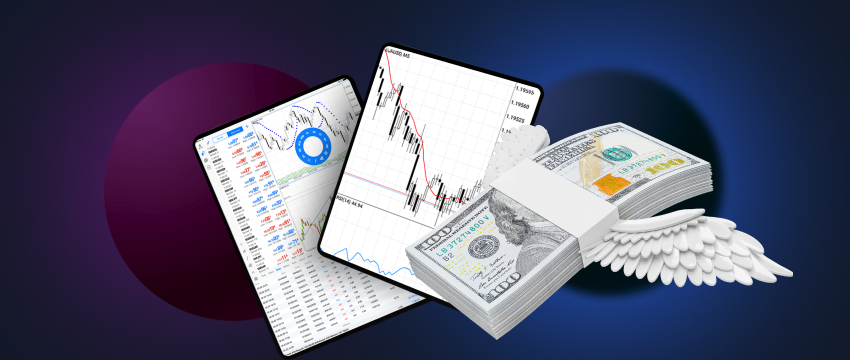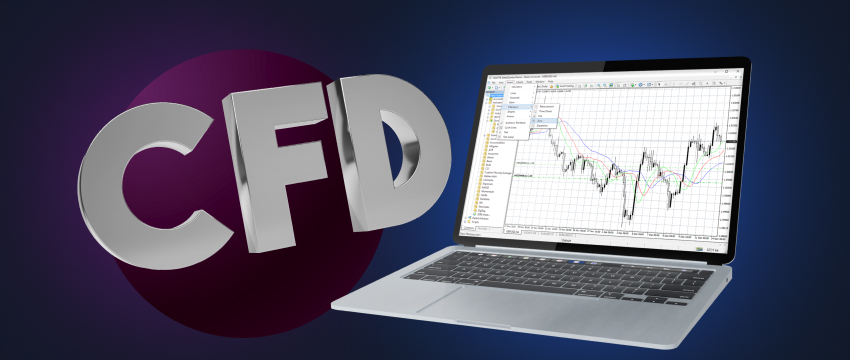The amount of money someone needs to start day trading is largely dependent on financial objectives, and budget. In addition, experience, and the willingness to take on risk.
Regulatory requirements in different jurisdictions may also set minimum capital requirements for trading accounts. In this blog, we’ll explore some key considerations. To establish how much money you need as you kick off your day trading adventure.

Broker requirements
Not all forex broker’s requirements regarding minimum deposits are the same for opening a day trading account. They may vary widely, making your choice of broker that much more important. With T4Trade for instance, a day trader. May begin trading with as little as $50, opening up a range of trading opportunities.
Risk tolerance
Regardless of how much money one needs to start day trading, of utmost importance is practicing effective risk management. The general suggestion is that traders should not risk more than they can afford to lose on any given trade. Instead, it is likely more sensible for a trader to start with an amount.
They are comfortable losing and progressively adjusting their figures as they gain more experience. Additionally, other risk management measures include calculating a position size based on your tolerance for risk and setting strategic stop-loss and take-profit orders to mitigate potential losses and safeguard your money.
Having realistic expectations
Whatever the minimum deposit requirement, be it $50 or $25k, setting realistic expectations is key, and get-rich-quick schemes are almost always a lie.
Day trading is by nature incredibly challenging. Managing multiple positions throughout a trading day requires vigilance, time, and a robust psychology that doesn’t fall prey to feelings of fear, greed, arrogance, or impulsion. The market is inherently volatile and unpredictable, and losses are typically inevitable.
Having realistic expectations helps traders make less impulsive decisions, and instead, focuses on investing outcomes based on data and analysis.
Other factors impacting capital requirements include:
- Use of leverage. Regardless of the sum of money you intend to start day investing with, making use of leverage not only increases the potential for wins, it also amplifies losses. Leverage is ultimately the use of borrowed funds to open and manage larger positions, with minimal capital requirements. For a beginner with little to no experience, leverage can be a slippery slope if not managed properly, oftentimes leading to massive losses. If you’re a novice trader, it would be advisable to get a proper handle on trading, taking your time to gain sufficient practice and experience, before using leverage as a means to maximize potential profits.
- ความผันผวนของตลาด. Markets vary, particularly in terms of volatility. Highly volatile markets are generally those that are characterized by aggressive price swings, increased risk, higher trading volumes, wider spreads, price gaps, and more. Traders executing trades in volatile markets must be mindful of these factors to mitigate potential losses that can come about quickly and unexpectedly if not monitored.
- Asset class. Different asset classes have different risk characteristics, with prices reacting to economic events and market trends in varied ways. Each class may also have different capital requirements, impacting the sum of money you’ll need to start trading. This is where portfolio diversification comes into play, allowing a trader to spread investments across various classes, thereby reducing risk, and increasing investing opportunities, regardless of budget.

Sustaining day trading activities through education
Experience and knowledge are vital components of successful day trading practices. Acquiring both can be achieved in several ways, as follows:
Using a demo trading account
Regardles of whether you are a novice trader or one with a wealth of expertise, signing up for and using a demo account enables one to refine their skills, regardless of level. A demo trading account provides a trader with a simulated investing environment, offering a way to get a proper, realistic feel for the market, and real-life trading conditions.
A trader can use the demo account to open positions using virtual funds, and then measure outcomes, without putting their own money at risk. For a beginner trader, this ensures they gain the practice needed to move to live trading.
For an experienced trader, a demo account provides a platform on which to execute the most complex strategies before attempting them in real life. A demo trading account will also allow a less experienced trader to become more familiar with trading platforms, for e.g. MetaTrader 4, learning their way around the system until they’ve learned the ins and outs.
Ongoing learning
Another way for a trader to widen their scope of trading-related knowledge is by engaging in ongoing learning. This may include accessing resources like articles, blogs, podcasts, webinars, seminars, videos, etc. There exists a wealth of material online, many of which are free to access and consume.
Many of the more reputable brokers will also provide this form of education to their traders via their websites. For instance, the T4Trade Education-Academy offers many of these resources to all traders, regardless of where they are in the world, prepared by a team of expert researchers and analysts in this domain.
Technical analysis
Irrespective of how much money you intend on using to start investing, having a good grasp of technical analysis to make informed trading decisions is vital. Day trading is influenced significantly by market factors, resulting in price volatilities which if not properly responded to, can lead to massive losses. Technical analysis will help a trader better understand charts and economic indicators to speculate the direction in which prices will move, and identify opportunities for trading.
Importance of selecting a reputable Forex broker
Picking a reputable is an important part of one’s investing journey, especially one that is regulated. There are many reasons for this. For one, a regulated broker is typically subject to certain guidelines and standards set by financial authorities. This often includes the maintenance of sufficient capital reserves and proper risk management practices. A reputable broker is also one that offers transparent terms and conditions, with competitive and fair pricing. They will usually offer a wide range of financial instruments (allowing for portfolio diversification) and top tier customer support.
Reputable brokers will most times offer educational resources and market analysis to help traders boost their knowledge and skills. This support can be especially valuable to beginner traders who are looking to build on their limited scope of information and experience.
A reputable broker is typically one that’s built a reputation over time. In the process of choosing a broker, remember to conduct proper research, and to read testimonials and reviews. Engage with community forums and listen to what other traders are saying, with peer to peer input a great source of credible input.

Trading with T4Trade
T4Trade has established a robust reputation, appealing to traders in many countries across the globe. T4Trade ticks many of the boxes we’ve mentioned in the article in terms of regulation, reliability, learning opportunities, and more.
Other reasons traders choose T4Trade are that it offers competitive spreads, flexible leverage, and quick and easy withdrawals and deposits. T4Trade also provides multiple account types to choose from, meeting the demands of traders at all levels.
It’s trading platform, MT4, is user-friendly, and feature rich, offering an optimal trading experience. T4Trade’s multilingual customer support is top-tier and on hand 24/5 to help you with any pressing trading-related queries. Furthermore, T4Trade Academy offers access to high-end educational resources to help you become a better trader.
Disclaimer: This material is for general informational and educational purposes only and should not be considered investment advice or an investment recommendation. T4Trade is not responsible for any data provided by third parties referenced or hyperlinked in this communication.




